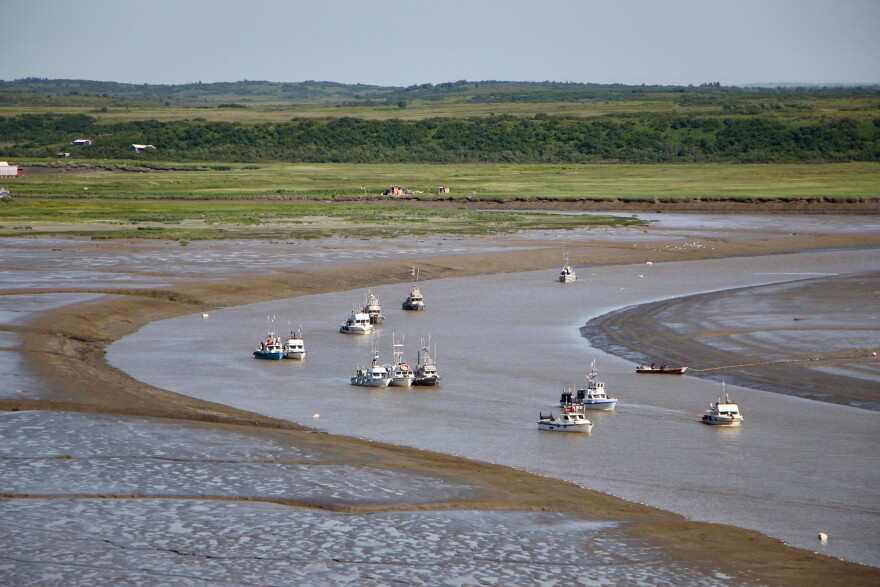The City of Dillingham and the Curyung Tribal Council wrote a strongly worded letter to Governor Mike Dunleavy Monday urging him to consider closing Bristol Bay’s massive commercial fishery to protect the community from the coronavirus pandemic.
Bristol Bay’s summer fishing season brings with it an influx of thousands of fishermen and processor workers into small communities around the region. The sockeye fishery is the largest in the world. Last year its preliminary ex-vessel value was the highest ever, at $306 million.
Get the latest coverage of the coronavirus in Alaska
In the letter, the tribe and the city said that there was no way to limit the communities’ exposure to the virus, even with the current requirement for processors to submit quarantine plans for their workers.
“Our communities will be the FIRST to be impacted by a huge influx of processing workers,” they wrote, continuing, “There is no way to prevent a potential mass disease situation when a few hundred people are in close proximity with each other.”
The region has limited health care resources to care for its permanent residents, if they should become ill. It can’t handle additional Outside patients, they said.
RELATED: North Slope Borough ‘commandeers’ Ravn’s North Slope assets
“We must decide now whether those resources should be devoted to current residents or instead to a temporary labor force?” they wrote.
The state has designated fishermen as “critical infrastructure,” and required processors to submit health and safety plans in order to operate. The city and tribe wrote that while they appreciate that processors have shared plans with them, they do not want to rely on corporations to ensure residents’ safety.
“We should NOT have to rely on the courtesy of industry to be included in such a critical exercise,” they wrote.
The city and tribe emphasized that no regional entities have the ability to limit the movements of fishery workers.
RELATED: Bristol Bay health corp fires exec after she suggests coronavirus is a political conspiracy
“This is unacceptable and places us in an impossible situation. If your office is not prepared to address this critical problem, then we may find the need to do so. We don’t want to find ourselves in conflict with the State of Alaska, especially when our objectives are the same,” they wrote.
They urged the governor to act immediately.
"Acting now will allow us to consider the following; should we devote our limited resources to attempting to control the fishery or, instead, should we devote our attention to mitigating economic impacts of not having a fishery,” they wrote. “There are economic stimulus efforts on the national, state and local level that might be mobilized to mitigate the impact to the industry, to the state and to individuals.”
In a press conference late Tuesday, the state’s Department of Health and Social Services Commissioner Adam Crum said that the state has reviewed the plans of many large processors, and was in an “ongoing conversation” with fishermen and processors about the protocols and procedures for the fishery.
“So we’re going to make sure that the local communities understand what the proper response is, what the mitigation plans — and that individuals coming in understand that we want to make sure that we protect Alaskans, and if we can’t do that in a safe way, then we’re going to have to find alternative means to actually deliver this work. To get creative on how this works,” Crum said.
RELATED: Joining villages across the state, Bristol Bay communities restrict travel to stem disease spread
Two weeks ago, the Curyung Tribe declared a state of emergency and disaster for the tribal community. The city council passed a resolution Thursday restricting travel into Dillingham. There are no reported cases in the region as of Tuesday morning.

